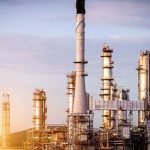ISLAMABAD: The indications from Saudi Arabia so far received suggest that it would not install a world class state-of-art and deep conversion refinery and petrochemical complex in Gwadar Port as there is no system available to evacuate the petroleum products.
However, Saudi Aramco has hinted at setting up the refinery with petrochemical complex at Hub, or at Somiani – coastal areas of Balochistan, which are not far away from Karachi, a senior official privy to the development confided to the News. “In Hub area, UAE is already in process of setting up deep conversion refinery. In addition there is already a Byco refinery which is operational since long.” In addition, there is a power plant being HUBCO Power House which is now being converted into coal run project.
However, the official said, the site of projects is yet be finalised as the pre-feasibility study on behalf of Pakistan has not yet completed. The authorities’ concerned have been asked to finalise the site for project by April at the maximum.
However, the Saudi Aramco has substantially completed its pre-feasibility. Pakistan wants the refinery and petrochemical complex in Gwadar, but the pre-feasibility study when completed will determine the site of the project.
The market study has shown that there is an ample appetite of new refineries in the country. When contacted, spokesman of Petroleum Division Additional Secretary (P) Mr Ch Ayub, refused to offer any kind of comment, saying that there is a Non-Disclosure Agreement (NDA) signed between Pakistan and Saudi Arabia for the said projects. “So he will not answer any question.”
However, the official source said that Saudi Arabia during the visit of Crown Price Mohammed Bin Salman to Pakistan on February 17-18, 2019 inked MoUs of worth $20 billion out of which it was decided that Saudi Armco will establish refinery and petrochemical in Gwadar.
Saudi Arabia had announced that it is set to invest $10 billion for refinery and $1 billion for petrochemical complex in Gwadar port city. Once the petrochemical complex is built and becomes operational, the import of chemicals in Pakistan valuing $4 billion will be done away with. Now under new scenario, Gwadar and petrochemical complex may not be the site of refinery. But the positive thing is that there is a resolve of Saudi Arabia to install the said projects may be either in Hub or in Somiani.
Saudi Arabia, the official said, wants to install the refinery with capacity to refine the crude oil of 300,000 barrel per day. However, UAE has started working for the refinery with investment of $5-6 billion in Hub, Balochistan with capacity of 250,000 barrels per day. And Chinese company is also keen to establish refinery of 200,000 barrels per day with investment of $3-4 billion at Gwadar. “If these kind of the state-of-art refineries are established, then by 2030, the country’s capacity to refine the petroleum products will go up to 45-50 million tonnes per annum which currently stands at almost 26 million tonnes,” said the official.
However, the refineries in Pakistan are not running at their full capacity, rather they are factually refining 12 to 13 million tonnes per annum. Today, Pakistan has a total refining capacity to process around 400,000bpd or about 19mtpa of crude oil, against the current demand of 24mtpa.
Total global refining capacity is 97 million bpd, and Pakistan, with nominal world share of 0.4 percent, is ranked 48th. Demand for oil products in the country is expected to grow steadily at seven percent on year-on-year basis, according to recent studies, in particular for the furnace oil, motor spirit, diesel and aviation fuel, which accounts for 78 percent of total oil demand.
Thus, the demand-supply gap will continue to strain heavily on the imports in future, if oil refining capacity is not added at a large scale.
Global refining capacity is expected to reach 115 million bpd by 2020 despite low crude oil prices and consequently the gloomy scenario for the oil and gas sector. It is however speculated that the global trend of declining oil prices would be arrested in the near future. Interestingly, most recent oil refining capacity additions have taken place in the Asia-Pacific region. Pakistan should therefore be no exception as future energy consumption poses a serious challenge for the nation and refining margins are high.
Currently, there are seven oil refineries operating in the country. Major players in the sector are Pak-Arab Refinery Co Ltd (Parco) of 100,000bpd (4.5mtpa), National Refinery Ltd (NRL) of 64,000bpd (2.9MTPA), Pakistan Refinery Ltd (PRL) of 47,000bpd (2.1mtpa), Attock Refinery Ltd (ARL) of 43,000bpd (1.9mtpa), Byco Refineries of 155,000bpd (7mtpa) output capacity, which was commissioned in June 2015.





